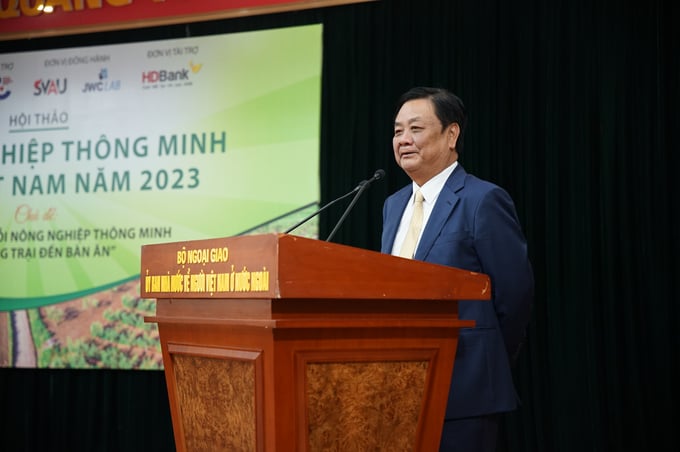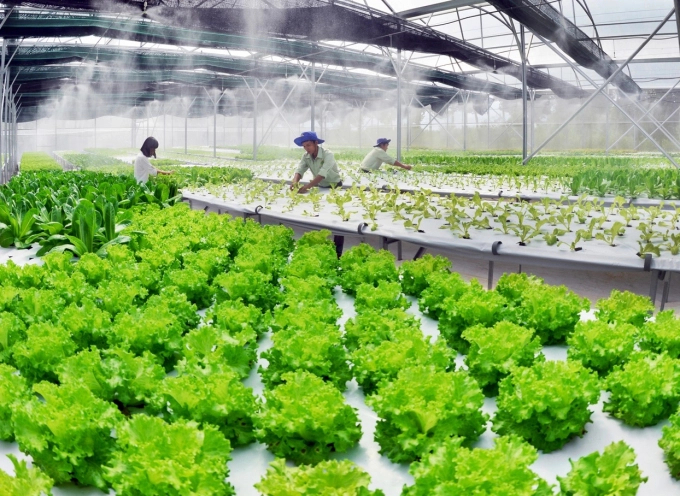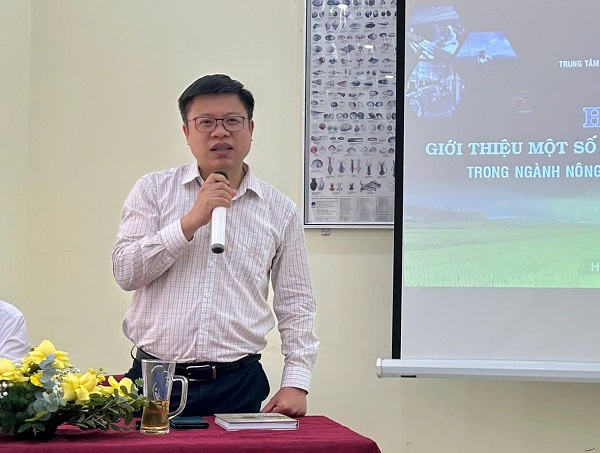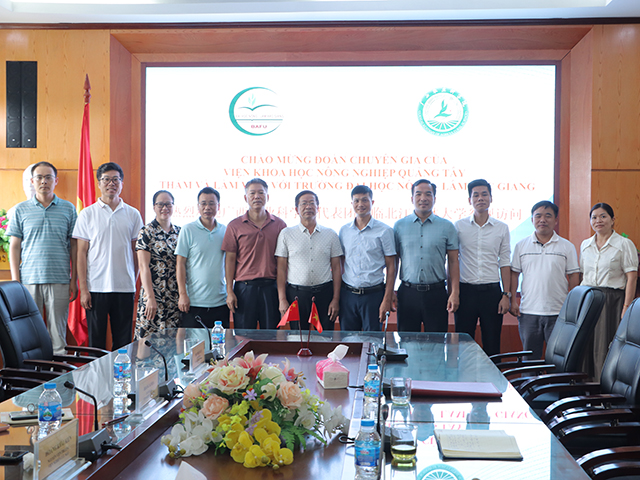(VAN) Vietnamese agriculture has thrived, to which farmers have contributed significantly. But it seems like there is a long way between academic research and how it can be used to help farmers.
On January 6, Vietnam – Australia Innovation Network (NIC – AU) hosted a workshop titled “2023 Smart agriculture in Vietnam” with the theme Building Smart agricultural chain “From farm to table.”
Knowledge dissemination to encourage creativity and initiative
In recent years, Vietnam’s agriculture has accomplished numerous remarkable feats, serving as the economic backbone of the country. In 2022, the total export volume of the agriculture industry surpassed USD 53 billion US dollars, up 9.3 percent from 2021. The year in which agricultural products reached USD 22.59 billion and fisheries reached USD 10.92 billion, representing the industry’s highest growth rate.
However, agriculture faces several problems from geopolitical instability, diseases, and climate change, while the industry’s production scale remains fragmented and tiny. In production, the rate of technology adoption is still slow. In the context of industry 4.0, a smart agricultural transformation is a crucial option for maintaining and enhancing the production and quality of agricultural products, as well as adapting to climate change and market demands.

Minister of Agriculture and Rural Development Le Minh Hoan delivered at the Workshop “Building a Smart Agricultural Chain “From Farm to Table”
“NIC AU anticipates sharing the efforts and knowledge of Vietnamese expatriates in Australia in order to achieve initiatives for the advancement of digital transformation and technological adoption by linking Vietnamese specialists, scientists, and international companies. Through the workshop, participants contributed practical ideas to develop agriculture, particularly the construction of a closed, comprehensive, and sustainable agricultural chain from farm to table, thereby contributing to the assurance of the quality of agricultural products, the reduction of product costs, the satisfaction of domestic demand, and the service of export markets,” Executive Chairman of Vietnam Australia Innovation Network Nguyen Phuc Binh stated.
Minister of Agriculture and Rural Development Le Minh Hoan stated that the concept of intelligent agriculture has been growing throughout Vietnam. “If in the United States there are ‘experts’ working in agriculture, the level of farmers in Vietnam is rather low, therefore introducing new and innovative values from overseas to Vietnam requires a step-by-step approach,” Minister Le Minh Hoan explained.
The Minister also underlined the program to intellectualize farmers in order to enhance their knowledge and abilities, therefore laying the groundwork for gaining access to and absorbing a new wave of information. “I have a dream that one day, knowledge will be all over the fields, barns, and ponds, and directly to the farmers. Academic ideas such as circular agriculture, intelligent agriculture, precision agriculture, and organic farming become the simplest textbooks for farmers to comprehend, embrace, and implement. Thus, efforts and innovations will no longer be immature but would evolve synchronously into a chain, giving Vietnam’s agriculture a new face,” Mr. Le Minh Hoan anticipated.
In order to do this, the Ministry urged the Australian knowledge community to share its contributions to the highly exploitable and developing sector of agricultural innovation.
Bringing agricultural innovation closer to farmers
The objective of the workshop Building a Smart Agriculture chain “From farm to table” is to create a networking forum for leading businesses and experts in developing and promoting smart agriculture initiatives. The workshop will focus on the construction of a smart agricultural production and distribution chain that meets three criteria: comprehensiveness, efficiency, and sustainability. In addition, this is a chance for professionals to discuss challenges and solutions related to the production and growth of smart agriculture in Vietnam.

Vietnam has a large number of institute- and school-level research projects on the phenotype and genotype of a certain species, but it is vital to construct a repository for all of these studies since data is a valuable resource
During the debate session on the first stage of the smart agriculture chain, which included the classification and improvement of varieties in accordance with market demands, as well as the categorization, processing, and preservation of agricultural goods, Dr. Nguyen Viet Tuan, Ministry of Agriculture Victoria (Australia), led the genomic study on dairy cows – an Australian viewpoint on the use of technology in Vietnam. According to Dr. Tuan, Vietnam has a large number of the institute- and school-level research projects on the phenotype and genotype of a certain species, but it is vital to construct a repository for all of these studies since data is a valuable resource.
According to this expert, the genome storage center would preserve all data on livestock’s genes, blood, sperm, eggs, etc. in a biological bank that is accessible to select groups of individuals and is exploited and utilized by researchers to help farmers.
“The Minister of Agriculture and Rural Development previously stated that farmers are a very significant component, but the facts indicate that the distance between schools, universities, and farmers is still fairly wide. This center will facilitate communication between schools, research institutions, and farmers. The personnel at this genomics facility should be taught to communicate effectively with farmers. From there, farmers may implement the most recent agricultural and producing techniques “Mr. Tuan proposed.
Prof. Dr. Nguyen Duy Luan, CEO of UziP Company (USA), stated that “what is the next step we need to do” to provide real results to the lives of farmers and build smart agriculture in Vietnam is crucial. Mr. Luan claims that investments in agriculture 4.0 (AGTECH) are steadily altering the agricultural value chain. Blockchain technology (blockchain), the internet of things (IoT), and artificial intelligence (AI) are well-researched fields that Vietnam must connect to in order to apply them appropriately in its agriculture business.
The application of technology will assist in bringing a fair business model to Vietnamese agriculture and the worldwide agricultural chain, increase the efficiency of the global food demand supply chain, and contribute to the resolution of the global food shortage crisis.
Prof. Dr. Nguyen Duy Luan suggested the construction of an agribusiness platform and center – AgriDAO and AgriHub – to promote the implementation of new technologies and sophisticated solutions in Vietnam’s agricultural production, input material supply chain, and food value chain. Experts from UZiP Company also solicit the participation of individuals, corporations, groups, and institutions in order to develop this platform’s ecosystem.
Translated by Linh Linh








